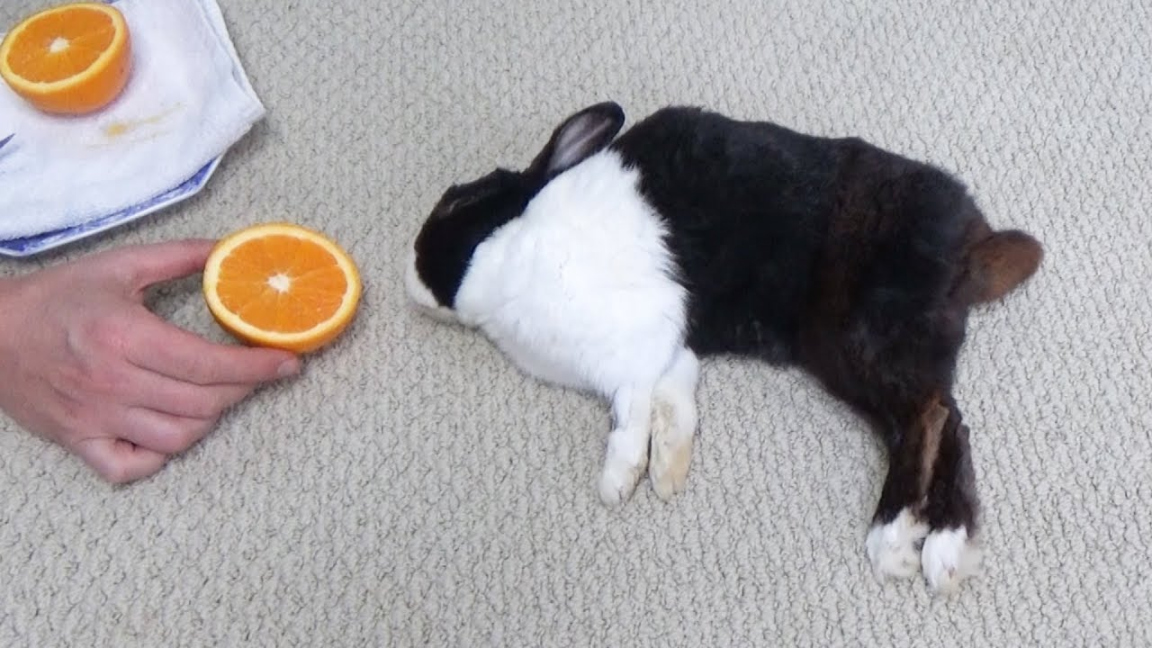Can Rabbits Eat Mandarin?
Rabbits are herbivores and have a highly specialized digestive system that is adapted to a diet of fresh vegetation. They primarily consume grass, hay, and leafy greens to meet their nutritional needs. While mandarins are a tasty and nutritious fruit for humans, can rabbits eat mandarins too? Let’s explore this question further.

The Benefits of Mandarin for Rabbits
Mandarins are a rich source of vitamins and minerals, including vitamin C, vitamin A, and potassium. These nutrients are essential for the overall health and well-being of rabbits. Additionally, the high water content in mandarins can help keep rabbits hydrated, especially during hot weather.
Potential Risks of Feeding Rabbits Mandarin
While mandarins offer some nutritional benefits, they should be given to rabbits in moderation. There are a few potential risks associated with feeding rabbits mandarins:
- High sugar content: Mandarins are naturally sweet and contain a relatively high amount of sugar. Feeding rabbits too many mandarins can lead to digestive issues, including diarrhea and upset stomach. It is important to remember that rabbits have delicate digestive systems, and sudden changes in their diet can cause problems.
- Acidity: The acidic nature of mandarins may also cause stomach discomfort in rabbits. It is advisable to introduce mandarins gradually to your rabbit’s diet and observe any adverse reactions.
- Citrus sensitivity: Some rabbits may be sensitive to citrus fruits like mandarins. If your rabbit shows signs of discomfort or allergic reactions after consuming mandarins, it is best to avoid feeding them this fruit altogether.
How to Safely Feed Mandarin to Your Rabbit
If you decide to offer mandarins to your rabbit as an occasional treat, it is important to follow these guidelines to ensure their safety:
- Introduce gradually: Start by offering a small piece of mandarin to see how your rabbit reacts. If there are no negative effects, you can gradually increase the amount over time.
- Limit portion size: Stick to small, bite-sized pieces of mandarins as a treat. Feeding large amounts can cause digestive problems for rabbits.
- Remove seeds and peel: Always remove any seeds or peels from the mandarin before offering it to your rabbit. These parts can be a choking hazard or cause digestive blockages.
- Variety is key: Remember that mandarins should not make up a significant portion of your rabbit’s diet. They should be offered as an occasional treat alongside their regular hay, grass, and leafy greens.
Frequently Asked Questions (FAQs)
1. Can rabbits eat mandarin peels?
No, it is best to remove the peels before feeding mandarins to your rabbit. The peels can be difficult for rabbits to digest and may cause stomach issues.
2. How often can I give mandarin to my rabbit?
Mandarin should only be given as an occasional treat, and not as a regular part of their daily diet. Once or twice a week in small amounts is generally safe.
3. Can rabbits eat other citrus fruits?
While some rabbits may tolerate small amounts of citrus fruits, it is generally not recommended. The high acidity and sugar content can cause digestive problems for rabbits.
4. What are some alternative treats for rabbits?
Rabbits can enjoy a variety of safe treats including small pieces of apples, pears, strawberries, and leafy greens like kale or parsley. Always introduce new treats gradually and observe your rabbit’s reaction.
In conclusion, while mandarins can be a tasty and nutritious treat for humans, they should be offered to rabbits in moderation. The high sugar content and acidity of mandarins can cause digestive issues and discomfort for rabbits. Always introduce mandarins gradually, remove any seeds or peels, and offer them alongside a balanced diet of hay, grass, and leafy greens. If your rabbit shows any adverse reactions to mandarins, it is best to avoid feeding them this fruit altogether and consult with a veterinarian if necessary.
Related Articles…
Copyright Notice:
The images displayed here are sourced from the internet, with copyrights held by respective owners. For removal of any copyrighted image, please email us.